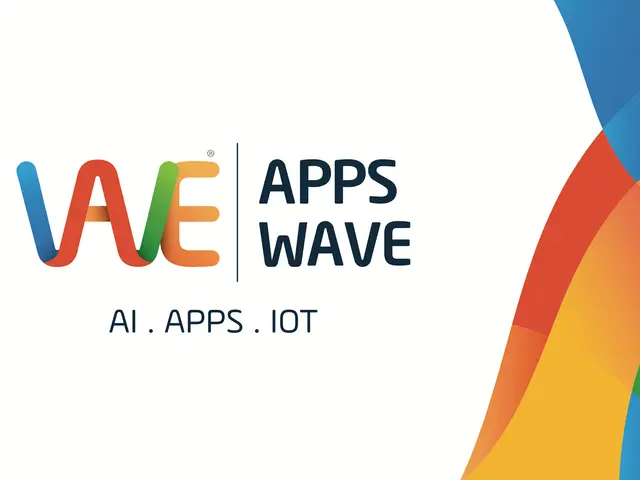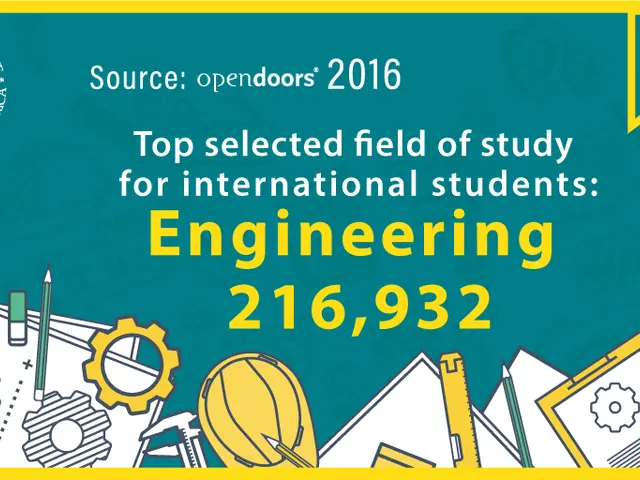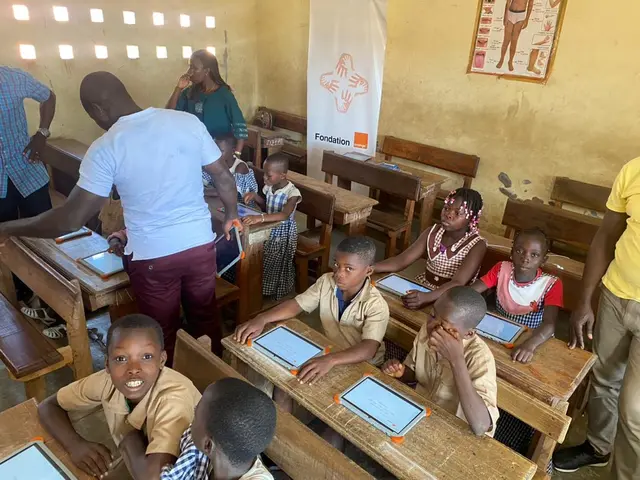AI's Impact on Shaping Africa's Future Workforce
In a groundbreaking move, Microsoft, in collaboration with industry experts from across Africa, has released a whitepaper titled "AI and the Future of Work in Africa". This comprehensive document highlights the potential of Generative AI (GenAI) to revolutionise various sectors, including agriculture, healthcare, and services, on the continent.
The whitepaper suggests that GenAI could significantly alter knowledge worker jobs, with many anticipating it to significantly change the type of work performed, the skills needed, and the outputs produced. Ravi Bhat, the Chief Technology and Solutions Officer at Microsoft Africa, foresees a significant role for AI in creating opportunities for Africa's burgeoning youth population, driving economic growth, and stabilising the continent.
Africa currently hosts nearly one billion people under the age of 35, and by the end of the century, it is projected to host almost half of the world's youth population. This demographic shift presents both opportunities and challenges. Up to 12 million young Africans enter the labor market each year, but more than 20% of these young people are neither employed nor engaged in education or training.
Equipping the youth with necessary skills for an AI-disrupted labor market is crucial to ensure they are not left behind in this technological shift. Access to AI tools via internet-enabled devices and affordable data is reducing barriers and increasing opportunities for skilling in Africa. Developing skills across a broad spectrum, including post-graduate skills in research and innovation in machine learning, natural language processing, human-computer interaction, cybersecurity, and systems, is emphasised.
Jacki O'Neill, Director at Microsoft Research Africa, states that AI has significant potential to advance human capabilities. The whitepaper indicates that AI could enable labor productivity growth of up to 0.6% annually through 2040. However, the growth rate of AI adoption and the redeployment of worker time into other activities is contingent on the rate of technology adoption.
The potential of AI to transform various industries is balanced with the need to develop skills in using and building appropriate and innovative applications and technologies on top of these models. The transformation is not just about the technology, but also about the people who will shape and utilise it.
In conclusion, the "AI and the Future of Work in Africa" whitepaper offers a compelling vision for the role of AI in Africa's future. It serves as a call to action for policymakers, educators, and industry leaders to invest in the skills and infrastructure needed to harness the potential of this transformative technology for the betterment of the continent.
Read also:
- List of the Top 10 Billionaire Gamers Globally in 2025
- UK-based software, MEMORI, earns distinction as the nation's first certified software-as-a-medical device, offering real-time infection prediction capabilities.
- Skincare is experiencing significant transformations with the rise of biotech ingredients - learn about their impact on the beauty industry.
- Artificial Intelligence Threat: Examining Pop Culture's Anxiety and Its Basis for Concern







